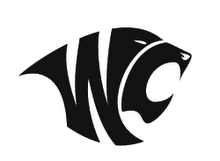With the Consumer Electronics Show having more of the media's attention than in recent years it was an opportune time for Microsoft (MSFT) to make the kind of splash during their annual speech the company needs. Granted part of the reason of the shifted media was Apple's (AAPL) MacWorld keynote speech, valiantly presented by stand-in Phil Schiller, focused on Apple software updates and lacked the ominous flair that "El Jobso" exudes or the shiny new toys gadget-connoisseurs have come to expect.
While Apple CEO Steve Jobs took a backseat this January it presented Microsoft head Steve Ballmer with a chance to speak at CES and present Microsoft's vision for not only renewed hope on its Operating System and Mobile front, where it's losing share to Apple, but also in Search, where it heavily trails juggernaut Google (GOOG).
While Microsoft has long tried to make inroads into Search, the company's approach has been the Biggie Smalls to Google's Puffy: "Mo' Money Mo' Problems". Year after year of throwing Billions of dollars at the cause hasn't resulted in any significant traction for Microsoft and in fact latest metrics show continued search share erosion. October-November data from comScore puts Google growing from 63.1% to 63.5% while Microsoft remains in 3rd place behind Yahoo (YHOO) falling from 8.5% to 8.3%. With the December holiday season on deck and the increase in search queries to boot it only stands to reason that Google continued to heavily outpace its two rivals.
Someone at Microsoft has been thinking about the late Notorious B.I.G., and finally the company has decided to try to turn the popular song around in its favour. The new strategy involves outbidding Google at every turn in order to put Live Search in front of as many "default" consumers as possible. It's a well known industry practice that companies pay hardware makers to have their products and services installed on default machines. Computers from Dell, Sony and HP all come with software from a variety of vendors beyond the standard Windows operating system, and recently this system has extended beyond hardware into web services as Google is in a deal with Mozilla (the makers of Firefox) to be the default search engine for the popular web browser. Microsoft hopes that by having many more default eyes on Live they can retain a high proportion of those users and turn them into searchers and ad-clickers. In essence: Mo' Money Less Problems.
Microsoft announced a couple of these partnerships during their CES presentation. The first with Dell, to have Windows Live essentials software pre-installed on all computers, which includes various software components including a browser toolbar and default search. The second with Verizon, and this may end up being the bigger of the two, to make Live Search the default search engine on Verizon phones. Microsoft clearly gave Verizon much better terms than Google as both companies were reported to be in the running for this deal. The 5 year exclusive partnership will see Microsoft search be put front and center to customers of now America's largest wireless carrier by subscribers.
Google of course now has its own Andriod operating system for Mobile devices and will look to that for growth, it also is the default search engine on Apple's incredibly popular iPhone and has its own Mobile Search application in the App Store. With an increasing number of web users becoming acclimatized to "google-ing", it will be difficult to say with certainty how many default users Microsoft can expect to keep for these partnerships. And you can certainly expect Google to be front and center in providing users with ways to have Google Search be installed alongside Microsoft's default offering or to replace it altogether. Either way shareholders of Microsoft need some sort of spark from the company, and with Windows 7 getting good press thus far, the Xbox successes and now the possibility of gains in Mobile and Desktop search the company may be finally ready to turn the corner.
Disclosure: Author owns AAPL, GOOG
08 January, 2009
Microsoft's Search Strategy: Mo' Money Less Problems
Posted by
Chris Krasowski
at
1/08/2009 11:52:00 AM
![]()
Labels: AAPL, Apple, CES, GOOG, Google, MacWorld, Microsoft, MSFT, Phil Schiller, Steve Ballmer, Steve Jobs, YHOO
Subscribe to:
Post Comments (Atom)





No comments:
Post a Comment